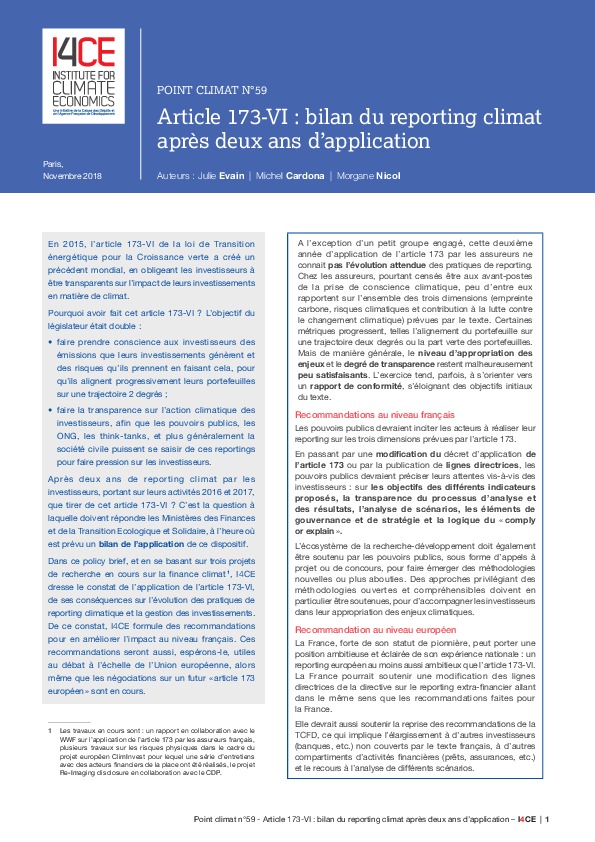Article 173: Overview of climate-related financial dislosure after two years of implementation
In 2015, article 173-VI of the French Energy Transition for Green Growth Act set a global precedent by requiring investors to be transparent on the climate impacts of their investments.
After two years of investor climate reporting, covering their activities in 2016 and 2017, what lessons can be drawn from article 173-VI? This is the question to be answered by the French Ministry of Finance and the Ministry for the Ecological and Inclusive Transition, with the upcoming review of implementation for this mechanism.
In this policy brief, and based on three ongoing research projects on climate finance 1, I4CE takes stock of the application of article 173-VI and of its implications for the evolution of climate reporting practices and investment management.
Drawing on this, I4CE makes recommendations to improve its impact at the French level. It is hoped that these recommendations will also be useful in the debate at the European Union level, while negotiations on a future “European article 173” are underway.
This climate brief is based on three ongoing research projects on finance, and in particular on a study conducted with WWF France: “Article 173: analysis of insurers’ climate reporting”.

